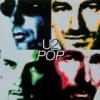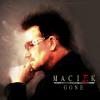Na u2.com,w części dla subskrybentów pojawiło się video z wywiadu/konferencji z zespołem w kwestiach "okołomandelowych":
http://www.u2.com/ne...raordinary-love
'We were introduced to activism through bands like The Clash and Bob Marley... at a very early stage we realised there was more to music than just rockin' out, that maybe in a small way it could make a difference.'
Larry on U2's political roots
'It was one of those things we just had to do because of our connection. We had to take a deep breath because we knew it would cause havoc in other areas of our work but we're very proud of the song, it has a heartfelt vocal and lyric, we're grateful that we were invited to be part of it.'To us the film is so important because of the character of Mr Mandela, what he achieved, the lessons of his life and the decisions he made as an politician, it is so important that this is widely known.'We went with Mr Mandela to see Robben Island, the cell in which he lived, it was really sobering to realise that when he went in there he thought he would never come out...'
Edge on the band's connection with Nelson Mandela
'Mandela had won most of the struggles - if it cost him 27 years of his life - but he lost in love, he lost hs wife. It was a profound sadness to him, that ache of love lost. To read his love letters is a real treat, a beautiful archaic language that he uses, he misses her in his cell. You realise that this was an extraordinary love, but actually, although extraordinary love is the subject of books, movies, novels and songs, perhaps the more important is ordinary love - the domestic, the simple things that people do to work around each other, to live and love each other and that's what they couldn't do.'
Bono on the inspiration behind Ordinary Love






























